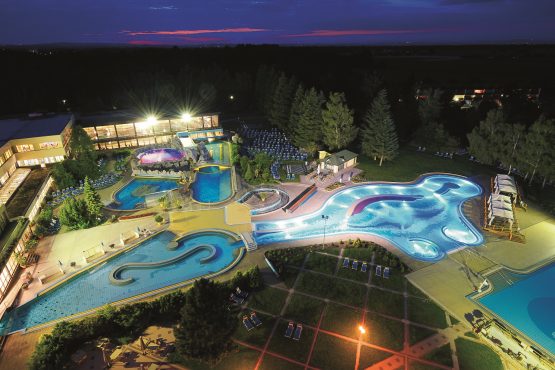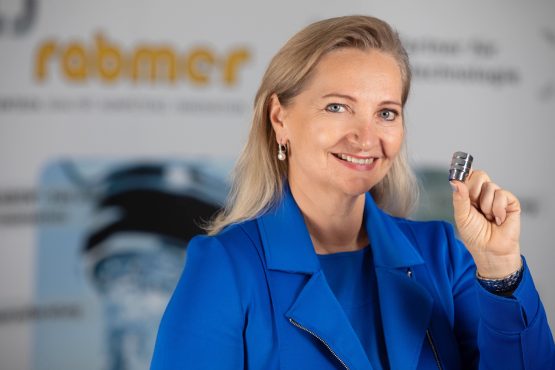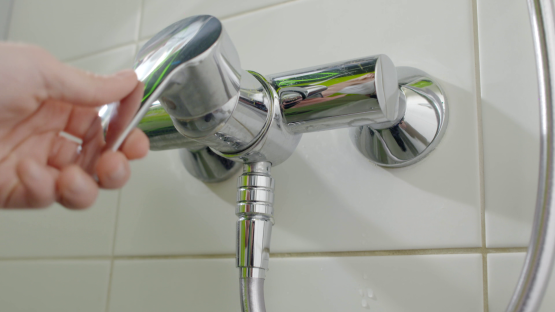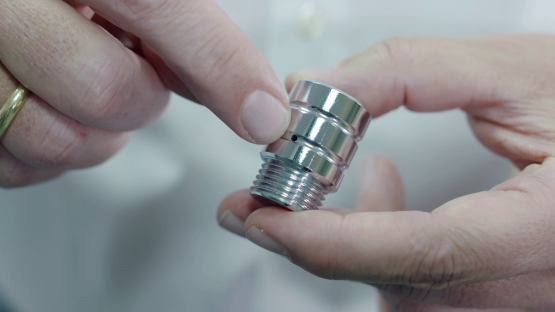Mini turbine makes hotels more sustainable
The current booking situation for German hotels gives cautious grounds for optimism for the peak season[1] and many tourism businesses are well prepared for the summer: even though the last two years have been challenging for the hotel industry due to COVID, it has been possible to focus on realignment, innovation and trends at the same time. Sustainability and energy efficiency are at the forefront of this. A prime example of this is the Johannesbad Therme Bad Füssing in Bavaria. By using over five hundred mini-turbines in the showers in the guest accommodation and wellness areas, the spa saves energy, water and operating costs while significantly reducing itsCO2 emissions. The Ecoturbino system from the Rabmer Group in Austria is responsible for this.
Munich/Altenberg, March 02, 2022: Tourists are increasingly looking at their ecological footprint when choosing their accommodation.[2] Hotels that build in a climate-friendly way and/or reduce their operating costs sustainably, for example, can therefore expect more guests in the future. Hot water plays a key role in possible measures to reduce energy costs andCO2. Showers in particular consume above-average amounts of water and energy to heat water - a major challenge for hotels, especially with the current dramatic rise in electricity and gas prices. Ernst Kaser, the manager of the Johannesbad Therme Bad Füssing, is also aware of this: "In a spa, you naturally use a lot of water when showering, as spa guests have several treatments a day, use the spa extensively and shower correspondingly often."
The Ecoturbino system provides a remedy in the Johannesbad Therme. "Thanks to the complete equipment, we have made enormous savings on water and energy, which not only leads to a significant reduction in costs, but also to a correspondingly sustainable use of water as a resource and the energy used to heat water - without our guests noticing anything," says Kaser.
Save 17 million liters of water with the same showering comfort
A total of 464 rooms and 59 thermal showers at the Johannesbad Therme Bad Füssing have been equipped with the Ecoturbino system. Every year, the spa saves around 17 million liters of water, 630,000 kWh of energy and almost 200 tonsof CO2. This reduces the total water consumption in the sanitary area by 17 percent. The Ecoturbino system has also been installed throughout the Johannesbad Group's locations throughout Germany and saves 120,000 m³ of water, 5,100,000 kWh of energy and 1,600 tons ofCO2 in 2,720 showers.
"How high the savings are varies from hotel to hotel. We therefore offer free measurements and test runs so that hoteliers can see the benefits of our technology for themselves. This simply shows how much water and energy can be saved without compromising the comfort of the guest," explains Ulrike Rabmer-Koller, Managing Director of the Rabmer Group.
Water-air mixture ensures a pleasant shower experience
The TÜV-certified Ecoturbino, which has been awarded the Austrian Ecolabel, is installed directly in the shower as a connecting piece between the tap and the shower hose. "In the Ecoturbino, the water flow is reduced by around 40 percent, mixed with air and swirled around. This massively increases the flow rate while maintaining full showering comfort. Hotels thus reduce their operating costs enormously - this is particularly important in view of the high energy costs andCO2 pricing. The environment also benefits, as less hot water consumption also means lowerCO2 emissions, which is impressively demonstrated at the Johannesbad Therme Bad Füssing," concludes Rabmer-Koller.
[1] DS Destination Solution: Booking situation at Easter & early summer " news | tip - Travel Industry Professional (tip-online.at)
[2] Sustainable tourism: How ecological is the hotel industry? | Environment Commissioner | Expert tips | Bayern 1 | Radio | BR.de

Johannesbad Therme Bad Füssing

Rabmer

Rabmer

Rabmer